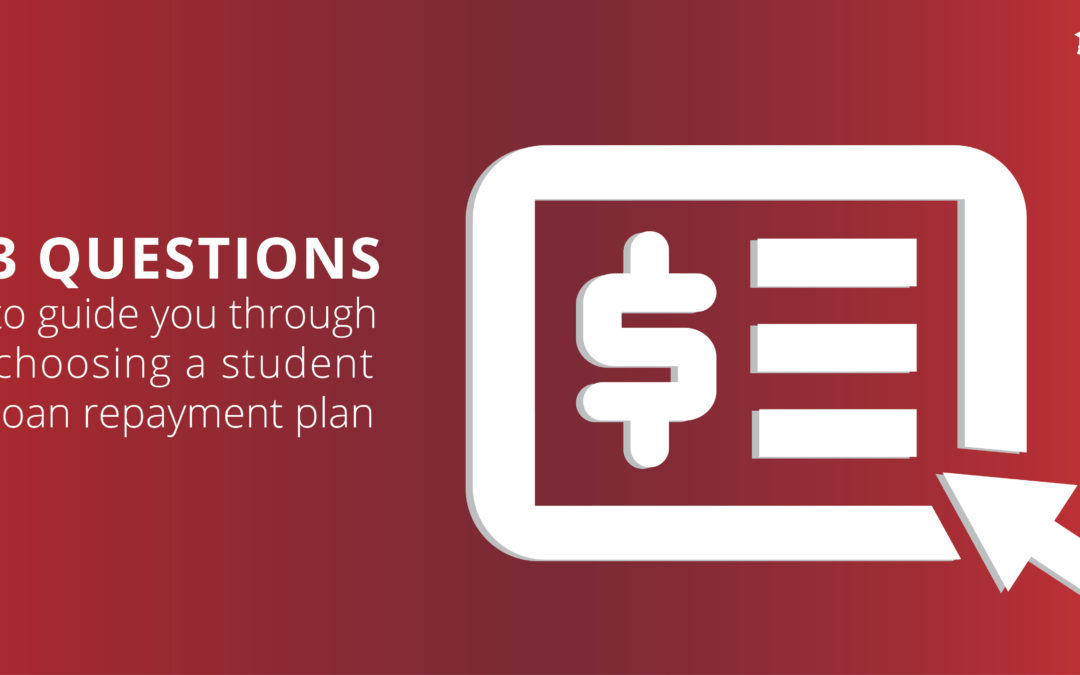There are several student loan repayment plans out there for borrowers with federal student loans. But how do you choose the correct repayment plan? With the choice of Standard, Graduated, Extended, Income-Sensitive, REPAYE and more, it can be hard to know which one is the best.
The good news is that there is no “right” plan – that’s why there are so many options! Finding right student loan repayment plan for your situation will take some work and planning on your part, along with some help from a loan counselor. Here are three questions you should answer for yourself before choosing a repayment plan for your student loans:
How much should you pay each month?
That is up to you. You need to know what you can afford and what your future financial goals are. We’ve said it before, but it bears repeating: Plan your budget. iontuition™ has loan repayment calculators and budgeting tools to help you make your decisions about what you can pay each month. You’ll be able to see your total loan balance, how much interest is accruing, and set up alerts to notify you of any changes. Set your priorities, watch your spending and establish your goals. No payment plan will work if you don’t know what payment you can afford and can stick with.
What is your goal with your student loan repayment?
Do you want to pay your student loan as quickly as possible? Then Standard or Standard Plus may be the right plan for you. Do you want lower payments? The Graduated, Extended or one of the income-based plans could be the one you go with. The plan you choose will depend on if you want to save money over the short term or long term and how much you’re willing to pay or how much you can afford. That is a question only you can answer. Consider the benefits and drawbacks of each plan, then decide which works best for you.
What does each plan offer?
Each student loan repayment plan has pros and cons. Here’s a quick description of each repayment plan:
Standard Repayment – This plan divides your total loan balance into set monthly payments over 10 years. Borrowers automatically get put into this plan unless they choose another. The minimum payment a borrower can make is $50 a month. If you can afford this plan and want to save on interest, this could be the plan for you.
Graduated Repayment – Payments start lower than the Standard plan and steadily increase over time. Like the Standard Plan, this repayment plan spans over10 years but you’ll pay more in interest because you aren’t paying as much towards your principal upfront.
Extended Repayment – This plan allows you to make lower payments on your student loans over an extended time, up to 25 years, and the payments can be fixed or graduated.
Income-Based Repayment (IBR) – Payments are based on 15% of your discretionary income and the term is up to 25 years. After 25 years, the unpaid balance can be forgiven, but any forgiven debt can be taxed.
Revised Pay As You Earn (REPAYE) Repayment – Payments are based on 10% of your discretionary income with a term of 20 years. Any outstanding loan balance can be forgiven after 20 years of payments, but any forgiven debt can be taxed.
Income-Contingent Repayment – Payments are based on annual income, family size and the total loan balance. The term is up to 25 years and can be forgiven, but any forgiven debt can be taxed.
Income-Sensitive Repayment – Payments here are also based on your income, but the term is 10 years. You’ll pay more interest and qualifying depends on the lender.
You may not qualify for all of the options we listed above, depending on your financial situation. Call the student loan counselors at iontuition and get their help. They will go over the details of each plan and see if you qualify. The student loan counselors can even help connect you with your servicers to set up the plan you choose.
The bottom line is you need to consider your options now. Planning ahead and selecting the right repayment plan for you will mean a lot less stress down the road. If your situation changes, you can change your repayment plan. By keeping up with your loan payments and monitoring them through a service like iontuition, you are more likely to be a successful borrower.

